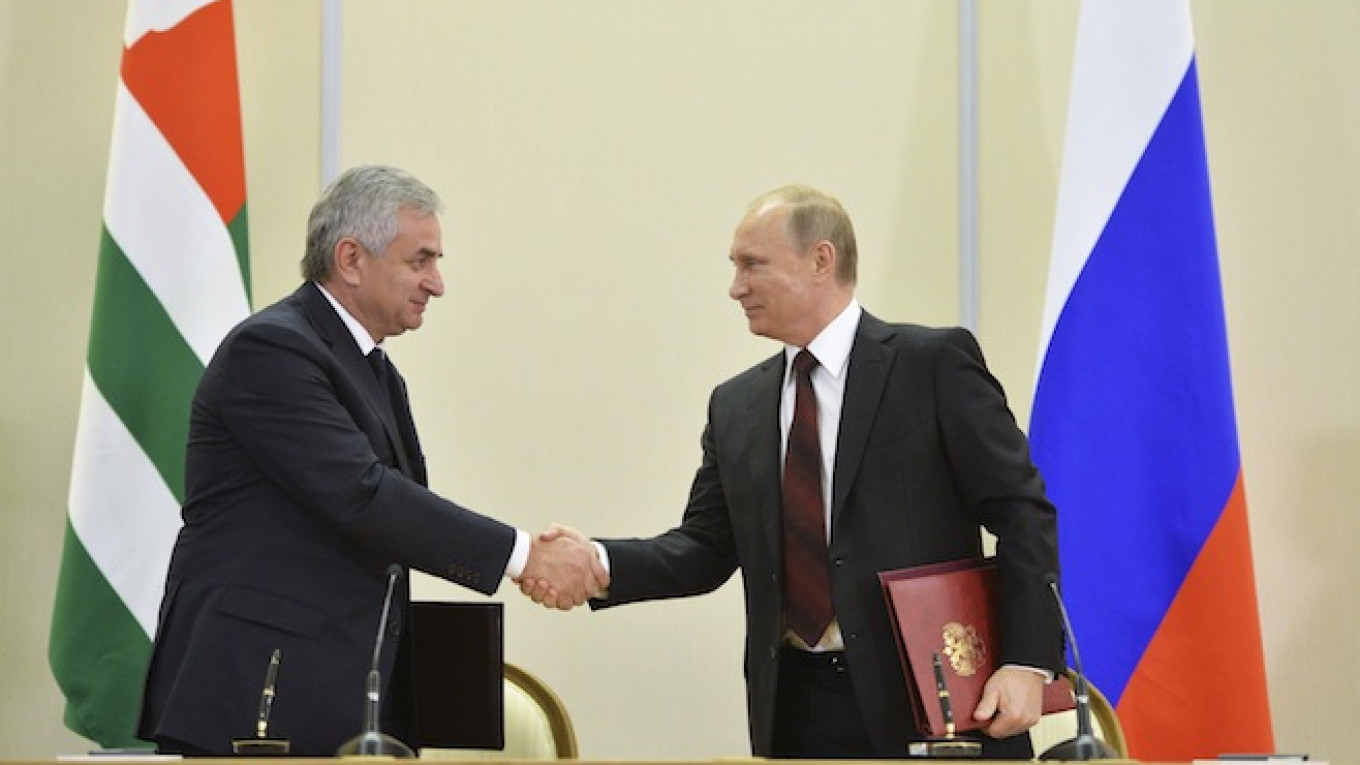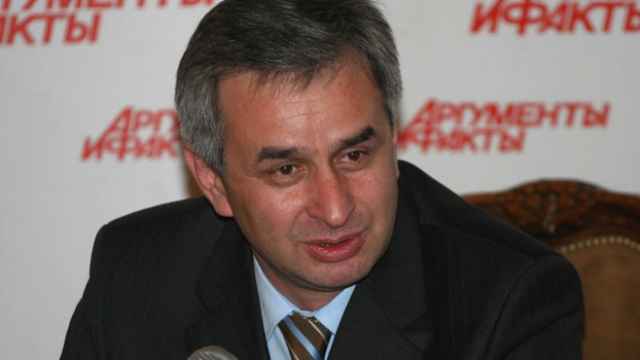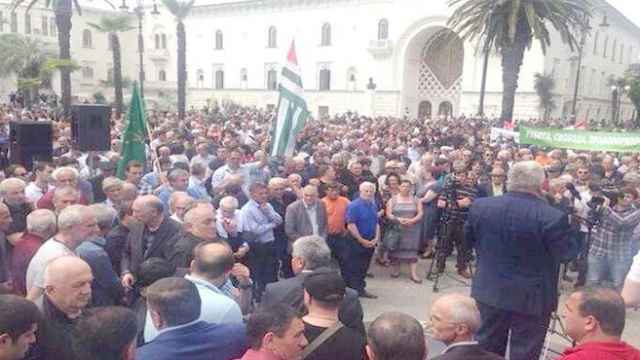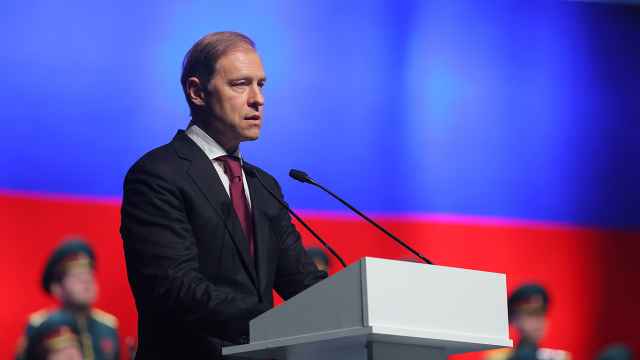Russia will form a joint army with Georgia's breakaway province of Abkhazia under a new cooperation pact that one expert said is part of the continuing fallout from the Ukraine crisis.
The treaty was inked Monday in Sochi by Russian President Vladimir Putin and his Abkhaz counterpart Raul Khadzhimba. It is valid for 10 years and will be prolonged automatically.
The joint military force will defend the Abkhaz border and protect both countries in the alliance in the event of an attack on either of them, according to the document.
The Abkhaz part of the force will be modernized by 2018, according to the document, available on the Russian and Abkhaz governmental websites.
The text of the deal does not elaborate on details of the joint force. Russia reportedly currently keeps 4,000 troops in the breakaway Caucasus republic, which has its own military of about 2,000.
Russia also pledged in the new treaty to bring Abkhaz pensions and salaries of state employees, including police, in the unrecognized republic in line with southern Russian averages. Customs cooperation is also on the list.
The Georgian Foreign Ministry last week expressed concern about the treaty, state-run Russian news agency TASS reported.
Putin followed through on earlier spending hike promises Monday, pledging to double Russia's financial aid to Abkhazia to provide it with more than 12 billion rubles ($267 million) through 2017, Interfax reported.
Russia spent about 30 billion rubles ($650 million) on Abkhazia in 2005-13, Khadzhimba said earlier. That included 1.8 billion rubles ($40 million) last year, Interfax reported.
Abkhazia, a Black Sea region with a population of 240,000, declared independence from Georgia after a bloody war in 1992-93 that ended largely due to the deployment of Russian peacekeepers.
Moscow officially recognized Abkhazia's independence soon after Russia's brief war with Georgia in 2008 over South Ossetia, another breakaway Georgian province whose independence Moscow recognized at the same time. Both regions, largely bankrolled by Russia, have failed to get wide international recognition.
Georgia, which has been distrustful of Russia since the war, moved to boost cooperation with NATO this fall, with plans to construct a training base for the alliance on its territory.
The signing of the treaty appears to be a reaction to the Ukrainian conflict, said Sergei Markedonov, an expert on post-Soviet conflicts at the Russian State University for the Humanities in Moscow.
Russia invaded and annexed Ukraine's Crimea Peninsula in March, and is widely believed to be supporting an ongoing pro-Russian insurgency in eastern Ukraine with money, equipment and shock troops, though the Kremlin has denied direct involvement.
“Georgia accelerated its NATO integration, and Russia had to answer with something,” Markedonov said in a telephone interview.
But he said the new treaty is causing less excitement in Abkhazia than might have been expected.
While in South Ossetia, the majority of the population wants integration with Russia, Abkhazia has been working to build a functioning independent state during the past two decades, though efforts have been hampered by a decrepit economy and lack of international recognition.
“Many [Abkhaz] are concerned because they want their own national project, but dependence on Russia is growing,” Markedonov said.
Illustrating his point, about 1,000 people rallied Monday in the Abkhaz capital Sukhumi to protest the treaty, which they said undermines Abkhazia's sovereignty, TASS reported.
Contact the author at [email protected]
A Message from The Moscow Times:
Dear readers,
We are facing unprecedented challenges. Russia's Prosecutor General's Office has designated The Moscow Times as an "undesirable" organization, criminalizing our work and putting our staff at risk of prosecution. This follows our earlier unjust labeling as a "foreign agent."
These actions are direct attempts to silence independent journalism in Russia. The authorities claim our work "discredits the decisions of the Russian leadership." We see things differently: we strive to provide accurate, unbiased reporting on Russia.
We, the journalists of The Moscow Times, refuse to be silenced. But to continue our work, we need your help.
Your support, no matter how small, makes a world of difference. If you can, please support us monthly starting from just $2. It's quick to set up, and every contribution makes a significant impact.
By supporting The Moscow Times, you're defending open, independent journalism in the face of repression. Thank you for standing with us.
Remind me later.







